Credit Cards
Find the Best Credit Card for you
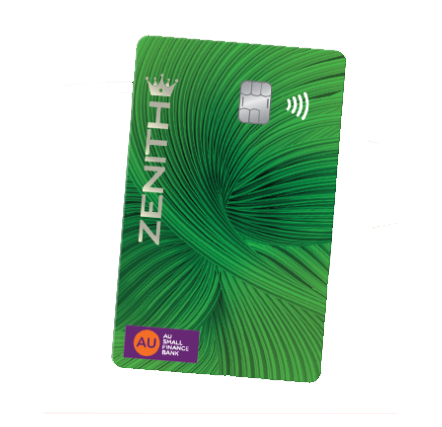
 AU Zenith Credit Card
AU Zenith Credit Card
Joining Fees: ₹7,999
Annual Fees: ₹7,999
*Applicable Taxes
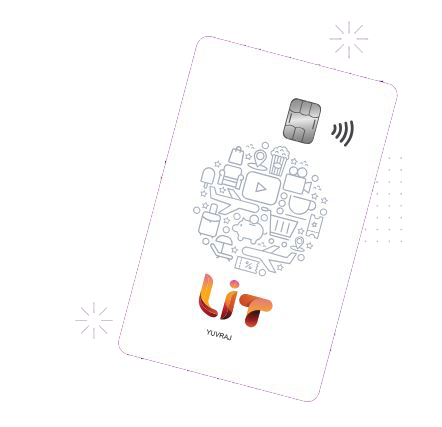
 AU LIT Credit Card
AU LIT Credit Card
Joining Fees: ₹0
Annual Fees: ₹0
*Applicable Taxes
Highlihgts:
- Select features as per your lifestyle
- Choose pricing as per your need
- Switch features ON/OFF as you wish
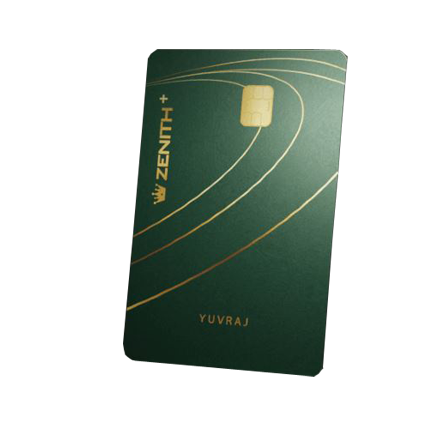
 AU Zenith+ Credit Card
AU Zenith+ Credit Card
Joining Fees: ₹4,999
Annual Fees: ₹4,999
*Applicable Taxes
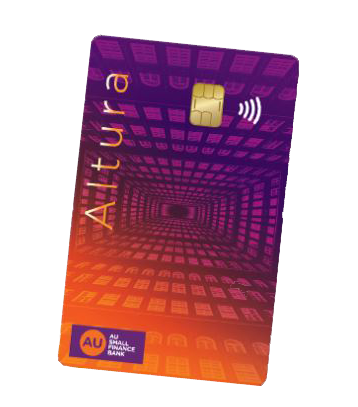
 AU Altura Credit Card
AU Altura Credit Card
Joining Fees: ₹199
Annual Fees: ₹199
*Applicable Taxes
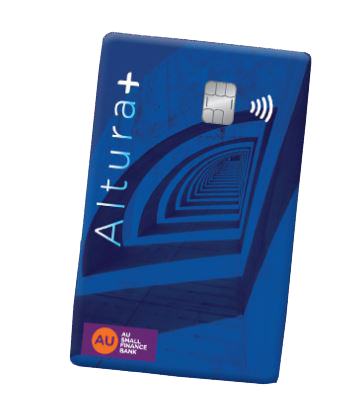
 AU Altura+ Credit Card
AU Altura+ Credit Card
Joining Fees: ₹499
Annual Fees: ₹499
*Applicable Taxes
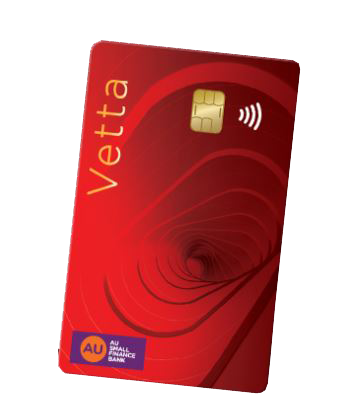
 AU Vetta Credit Card
AU Vetta Credit Card
Joining Fees: ₹2,999
Annual Fees: ₹2,999
*Applicable Taxes
Highlihgts:
- Quarterly & Yearly Milestone Benefits
- Complimentary Lounge Access
- AU Rewardz
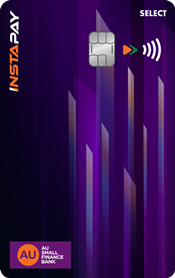
 AU InstaPay Credit Card
AU InstaPay Credit Card
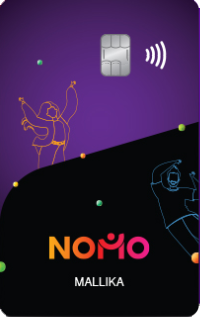
 AU NOMO Credit Card
AU NOMO Credit Card
Joining Fees: ₹199
Annual Fees: ₹199
*Applicable Taxes
Highlihgts:
- Creation and maintenance of a fixed deposit
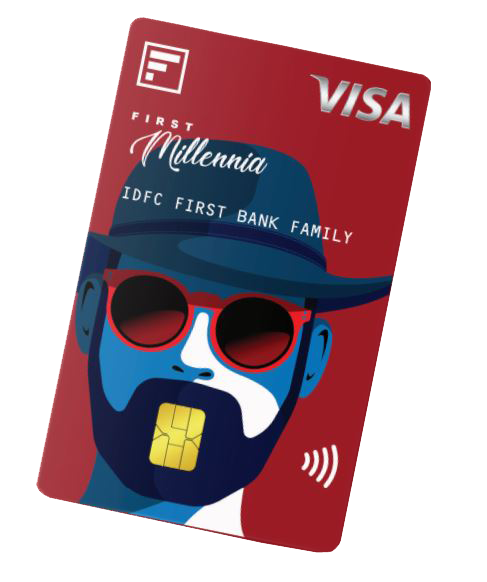
 IDFC First Millennia Card
IDFC First Millennia Card
Joining Fees: ₹0
Annual Fees: ₹0
*Applicable Taxes
Highlihgts:
- Lifetime free Credit Card
- Low interest rate, starting at 0.75% p.m. (9% annually)
- 5% cashback on the first EMI transactions
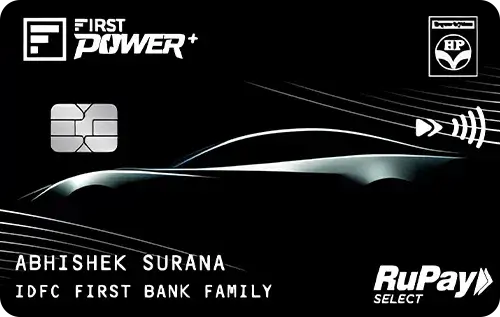
 IDFC FIRST Power+ Credit Card
IDFC FIRST Power+ Credit Card
Joining Fees: ₹499
Annual Fees: ₹499
*Applicable Taxes
Highlihgts:
- Welcome benefits worth ₹2500
- 0% Interest on ATM Cash Withdrawals until due date
- Lifestyle Privileges
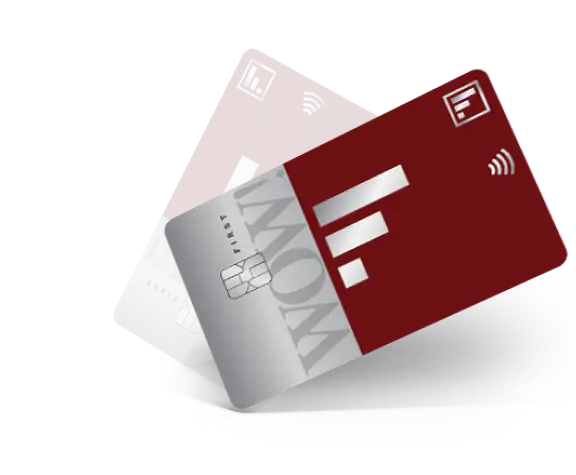
 IDFC FIRST WOW!
IDFC FIRST WOW!
Joining Fees: ₹0
Annual Fees: ₹0
*Applicable Taxes
Highlihgts:
- Enjoy No Forex conversion fee
- Up to 3X reward points on all UPI spends
- Withdraw cash up to 100% FD value
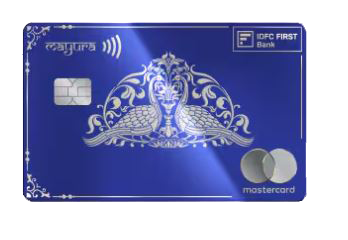
 IDFC Mayura Credit Card
IDFC Mayura Credit Card
Joining Fees: ₹5,999
Annual Fees: ₹5,999
*Applicable Taxes
Highlihgts:
- Bonus 10,000 Reward Points on Joining Fee
- Earn 4,000 cashback as welcome benefit
- Up to 10X Reward Points
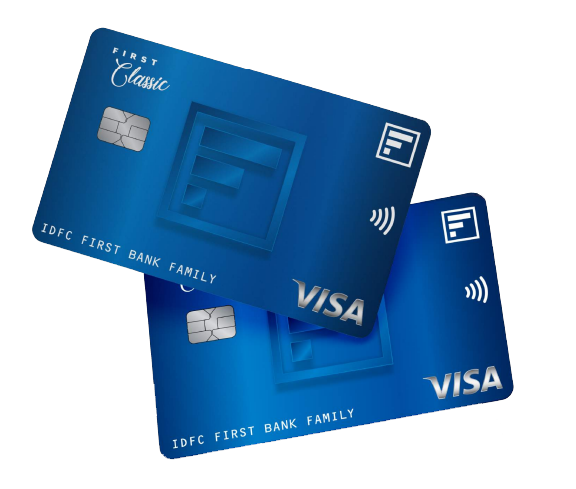
 IDFC First Classic Credit Card
IDFC First Classic Credit Card
Joining Fees: ₹0
Annual Fees: ₹0
*Applicable Taxes
Highlihgts:
- Lifetime Free Credit Card
- 10X* on incremental spends and 20,000 per billing cycle
- 6x on online spends
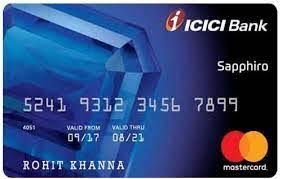
 ICICI BANK SAPPHIRO CREDIT CARD
ICICI BANK SAPPHIRO CREDIT CARD
Joining Fees: ₹6,500
Annual Fees: ₹6,500
*Applicable Taxes
Highlihgts:
- 2 reward points for every Rs. 100 spent
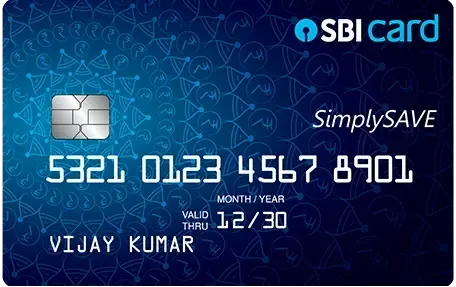
 Simply Save SBI Credit Card
Simply Save SBI Credit Card
Joining Fees: ₹499
Annual Fees: ₹499
*Applicable Taxes
Highlihgts:
- 10X Reward Points on Dining, Grocery & Movie spends
- 1% fuel surcharge waiver
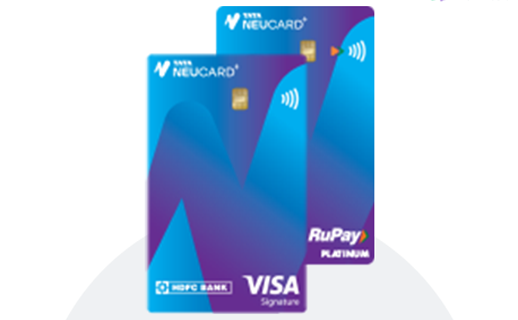
 TATA Neu Plus HDFC Credit Card
TATA Neu Plus HDFC Credit Card
Joining Fees: ₹499
Annual Fees: ₹499
*Applicable Taxes
Highlihgts:
- Zero lost card liability
- Interest-Free Credit Period
- Revolving Credit
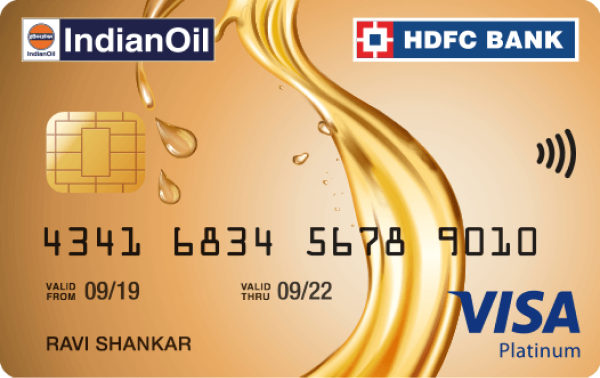
 HDFC IndianOil Credit Card
HDFC IndianOil Credit Card
Joining Fees: ₹500
Annual Fees: ₹500
*Applicable Taxes
Highlihgts:
- Earn up to 50 Litres of Free fuel annually
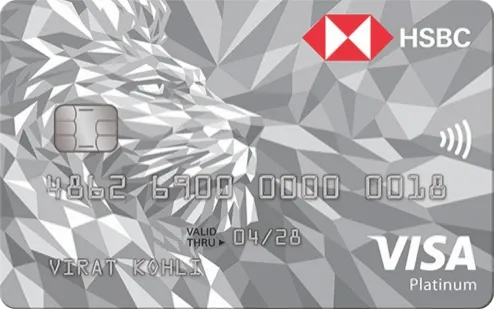
 HSBC Visa Platinum Credit Card
HSBC Visa Platinum Credit Card
Joining Fees: ₹0
Annual Fees: ₹0
*Applicable Taxes
Highlihgts:
- 5X the reward points
- Air miles conversion
- Fuel surcharge waiver
Get financing for whatever you need now
Enquire NowWhat is a Credit Card and How It Works?
A credit card is a plastic/Metal/visual tool that facilitates the purchase of groceries, accessories, travel arrangements, and movie tickets, while also providing benefits such as access to airport lounges and round-the-clock concierge services. The expenditures made using the card allow you to accumulate rewards, discounts, cashback, fuel surcharge waivers, and additional advantages. The rewards accrued can be redeemed for exclusive gifts or credited back to the card account. Typically, these rewards have an expiration period of 2-3 years after they are earned, although some credit cards offer rewards that do not expire. Additionally, rewards may be granted for spending a specified amount as outlined by the credit card issuers, and applications for credit cards can be submitted online. These rewards may manifest as gift vouchers or fee waivers, contributing to your overall savings. Purchasing online is a straightforward process that requires only a few clicks. If online shopping is not your preference, you can also visit a physical store and use your card to make purchases. You have the option to either make a full payment with your credit card or select the equated monthly installment (EMI) plan. If you opt for the full payment and settle the entire amount, no interest will be charged. Conversely, if you do not pay the full amount, the credit card issuer will impose an interest rate ranging from 2.50% to 3.50% per month, which translates to an annual rate of 30% to 45%. The EMI option, while also subject to interest, offers a lower rate of 13% to 18% per annum.
Why Choose Credit Cards?
Credit cards will offer you the following benefits -
- Comfort
- Convenience
- Luxury
- Travel
- Best-in-class services
- Freedom to shop for anything from anywhere at any time and much more
Types of Credit Cards
There are tons of credit cards available these days, especially as India gears for a full-fledged cashless economy. However, not all cards that you see would help meet your needs. So, you need to figure out your requirements properly before choosing a credit card. Credit cards are broadly categorized into the following-
Cashback and Rewards Cards
These cards provide cashback and rewards for expenditures. Cashback reduces the overall expense of a purchase, leading to greater savings for customers. Conversely, reward points can be accumulated through spending, which can subsequently be redeemed for shopping at various online and offline retailers. Below is a list of the top five cashback and rewards cards.
Eligibility Criteria
- You should be at least 18 years of age at the time of application.
- You must not be more than 65 years old by the time you apply credit card online.
- Salaried must have an annual income of at least INR 2 lakhs. On the other hand, self-employed must be earning a minimum of INR 1.5 lakh to get the approval. However, the income criteria can differ from bank to bank.
- The credit score must be 750 and above for a hassle-free approval
Note - The eligibility criteria shown above can vary according to the type of credit card offered.
Income Eligibility With Respect to Credit Card Application
It is advisable to first verify with the lender whether the income required for a credit card application is assessed on a gross or net basis. Additionally, it is important to understand that banks typically evaluate fixed income when determining application approval. Fixed income excludes any incentives or variable earnings an individual may receive. Therefore, ascertain whether your fixed income meets the necessary amount for approval. If it does, you may proceed with your application. If it does not, consider seeking banks that provide credit cards based on fixed income criteria.
Example - Manoj applies for a credit card at a bank which considers gross fixed income to approve or reject the application. The income requirement is INR 5 lakh a year. Income particulars of Manoj for 1-year period is shown below.
- Average Gross Monthly Income - INR 44,000
- Fixed Monthly Income - INR 24,000
- Average Incentives in a Month - INR 20,000
- Total Annual Income (Including Incentives) - INR 5,28,000 (44,000 x 12)
- Total Annual Income (Without Incentives) - INR 2,88,000 (24,000 x 12)
Keeping this in mind, Manoj's application would be rejected even as the income including incentives is above the amount of INR 5 lakh as sought. He must earn a minimum gross fixed monthly income of INR 41,667 to gain an approval.
Documents Required
- Passport size photographs
- ID Proof - Any one from Passport, PAN Card, Ration Card, Adhar Card, Voter's ID Card, Driving License
- Address Proof - Any one from Passport, Rent Agreement, Telephone Bill, Ration card, Electricity bill, Aadhar card
- Applicants should have PAN Card, Form 16 and Income Tax Returns Statement.
- Recent salary slips/certificate for last 3 months/latest bank statement showing the credit of salary for a minimum of 3 months
Credit Card Apply Online
After glancing at the reward points, cashback and other benefits, it's time to apply for the card online at upaybazaar, a neutral marketplace for loans and other financial products. There are three ways by which https://upaybazaar.com you can apply here. All three are described below for you to look at.
How to Apply for a Credit Card on WhatsApp
- Click on 'Apply with the ease of Whatsapp Chat' on the 'Credit Card' section.
- A new page will appear asking you to enter your mobile number.
- Enter the number and then click on 'Continue with WhatsApp' at the bottom.
- You will get added to a Whatsapp group with upaybazaar being the other member.
- A message regarding the credit card application will be sent to the group.
- Mention a few details in the conversation before submitting your application.
This was all about credit cards apply on WhatsApp. Use this one-of-a-kind service to get your favourite cards.
Apply via Filling Form
- Provide your personal and professional details
- Click on 'Explore Credit Cards' after filling the details
- Choose from a customized list of cards and apply for the one you want
- After that, you will receive a call from the dedicated executive verifying the details submitted by you
- Subsequently, you will receive an SMS with a link
- Click on it to check the details filled by you at the time of application
- Click on 'Instant Approval' at the bottom to get the application processed
Benefits of Applying at UPAYBAZAAR
Applying online at upaybazaar has benefits of its own. Some of these include-
Ease of Use - You can visit the website of upaybazaar and choose from any of Whatsapp, chat or even the conventional application form to apply.
Fast - You can apply for the card in a few minutes by answering or filling relevant personal and professional information.
Instant Approval - If you have submitted the details correctly and meet the eligibility criteria, an instant approval will remain a formality!
Effective Comparison of Offers - You can compare exciting offers in terms of reward points, travel privileges, fees, etc. A good comparison helps you choose the best deal that would not only match your needs but also let you live with style.
Credible Information Display - The information displayed is researched thoroughly and get updated on a timely basis, hence ensuring a greater degree of reliability.
Transparency in Information - Not only the offers, you can also get to know the applicable fees & charges. The information is transparent, so you can get a complete detail before applying for the card. This only boosts consumer confidence and has made many applying through Upaybazaar.
Excellent Track Record - Upaybazaar has enabled the wishes of more than 18 million customers through a rich vein of financial products including credit cards.
How to Apply for Credit Card Offline?
You can also visit the nearest branch with the required documents to apply for the credit card. The documents are already mentioned above. So, take note of that. There, you need to ask for the credit card application form. Fill the details asked in the form before submitting the same along with the documents to the branch official. The bank would check the application form and documents thoroughly and give an approval only when the details are verified successfully.
Check Credit Card Aplication Status Online
You can check the application status online in a few minutes. The process involves the following steps.
- Visit the website of the concerned lender
- Go to the application status page.
- Fill in a few blanks on the page, including application reference number, date of birth and mobile number.
- The application status will flash on the screen showing any of the three - approved, pending for approval or rejected.
In case you face a rejection, the reasons for the same would be mentioned too. If you can fill those voids, do so and have a credit card apply again for an approval.
Credit Card Statement
The statement is a document showing the payment date, the amount due, minimum due, the list of transactions, rewards summary, etc. The late payment charges, if any, would also be shown in the statement. You can check the statement on your email ID as well as get the same on your registered address.
If you check the statement carefully, you can detect some possible errors. The bank can commit an error, and as a result, the outstanding balance will rise erroneously. If you find an error, report the same to the bank at the earliest for correction.
Features & Benefits of Credit Cards
- You can earn reward points on several online and offline spends. Rewards earned can be redeemed to book flights, movie tickets, and for shopping at top brands. The redemption rate can vary among the cards, with some offering INR 1 for 1 reward point while others offering 20 or 30 paise for every reward accumulated.
- Accelerated reward point offers are also available for customers. Say a card comes with 10 normal reward points for every INR 100 spent. Another one comes with 5X reward points per every INR 100 spent. The latter is nothing but an accelerated reward offer, taking the total rewards to 50 in comparison to 10 in the case of normal reward structure.
- Cashback and discount benefits reduce the cost of card shoppers greatly. While cashback is credited to the card account on a specified date after the transaction is made, discounts mean an outright reduction of the cost. Reward points can also be redeemed as cashback to the credit card account in the ratio as specified by the bank.
- Avail a surcharge waiver on fuel spends to decrease your vehicle refill cost
- Movie ticket vouchers, access to golf courses, discounts on dining & shopping make cards more appealing
- Accumulation of air miles, cashback or dicount on hotel booking, travel cover and much more are available on travel credit cards
- Enjoy lounge access at select domestic and international airports
- Get 24x7 concierge services as assistance for room reservation, car rental, flowers & gifts, etc
- Accomplishment of milestone spends earn you the annual fee waiver
- Instant loan can be availed against credit card at attractive interest rates
- Zero lost card liability feature provides cover for any losses arising out of the fraudulent usage of the lost or stolen card on reporting the incident immediately to the concerned lender on their helpline numbers.
- Dispute resolution
- Emergency card replacement facility
Credit Card Bill Payment
You can pay credit card bills from any of the following modes.
- Internet banking
- Mobile banking
- Payment gateway
- Cash or demand draft deposit at bank branch
How to Make Card Bill Payment via Net Banking & Mobile Banking?
You can pay using the net banking or mobile banking access of the concerned bank.
- Log in to either of the channels using your credentials
- Go to 'Credit Cards' section
- Enter the bill amount
- Pay the bill
- An online payment receipt would come on the screen post the successful transaction
- You would receive an e-mail message and SMS regarding the transaction
If you have the net banking or mobile banking access of other banks. you can follow the steps described below to pay your bills.
- Add the card by registering the card number, expiry date of the card, etc.
- Set Auto Pay if you want an automatic payment of the bills on or before the due date
- Else choose to pay yourself by just adding the bill and not setting an 'Auto Pay'
- You would receive the bill intimation in advance, whether you have activated auto pay or merely added the card.
- You would receive an e-mail as well as an SMS upon bill generation
- Maintain the required sum in the bank account for a seamless bill payment
How to Pay Credit Card Bill via Payment Gateway?
You can use the payment gateway to pay the bill. Choose from any of debit card and internet banking options to pay the dues.
Credit Card Customer Care Number
If you face any problem or have a query regarding a credit card, don't hesitate to ring the 24X7 customer care centre of the concerned card issuer. You can find the number on the website of the lender or even on the card issuance letter. The customer care executives will hear your queries patiently and resolve them at the earliest. They may suggest you certain measures to sort out the issue ASAP.
How to Raise Credit Card Issue with Customer Care?
- Dial the 24x7 customer care number of the concerned card issuer
- Listen to the instructions carefully
- The Interactive Voice Response (IVR) would tell different numbers to press for specific queries
- Press on the number for your query
- The customer care executive would ask you to authenticate by providing a few details
- Post-authentication, you can raise the query and get it resolved ASAP
How Can Credit Cards Help Maintain a Strong Credit History?
Credit cards are one of the best financial instruments to improve your credit history. All you need to do is shop with discretion and make payment on or before the due date. The plastic instrument can last forever even as they get renewed every 2-3 years from the date of their issue. It can thus continue building your credit history, much unlike loans that expire after a certain period. You just need to show the credit discipline by paying dues on time to get your credit history stronger with time. A strong credit history would make you eligible for a card upgrade or several other exciting deals.
How is Interest Calculated on Revolving Credit?
Credit cards come with an interest-free period of 20-50 days as extended by banks across India. You can pay the full amount to get relieved of the interest and tax burden. However, if you pay below the total due or minimum due, the interest and taxes would add to the bill. The interest rate ranges from 2.5%-3.5% per month on an average. On the overall interest amount, the GST at 18% is getting charged. Previously, the service tax at 15% was levied on the interest amount. Let’s understand how interest gets calculated on the revolving credit. Interest=Outstanding Amount x Rate of Interest x 12 months x number of days/365 To understand how calculations run in a credit card interest calculator, let’s look at a few scenarios against the following information:
- Transaction date - 1 March
- Statement date - 7 March
- Due date - 27 March
- Transaction amount - Rs 1,00,000
- Total amount - Rs 1,00,000
- Minimum amount - Rs 5,000
- Interest rate - 42% per annum
|
Scenario |
Payment Details |
Interest Calculation |
|---|---|---|
|
Full payment on time |
Payment date - 20 March Payment amount - Rs 1,00,000 |
[20 X 1,00,000 X 42%] / 365 = Rs 2,301 (effectively Rs 0)*. |
|
Part-payment on time
|
Payment date - 20 March Payment amount - Rs 50,000 Next statement date - 7 April Transaction amount during the cycle ended 7 April - Nil |
Till 20 March - [20 X 1,00,000 X 42%] / 365 = Rs 2,301 From 21 March to 7 April - [17 X 50,000 X 42%] / 365 = Rs 978 Total credit card interest = 3,279 |
|
Partial payment after the due date
|
Payment date - 28 March Payment amount - Rs 50,000 Next statement date - 7 April Transaction amount during the cycle ended 7 April - Nil |
Till 28 March - [28 X 1,00,000 X 42%] / 365 = Rs 3,222 From 28 March to 7 April - [10 X 50,000 X 42%] / 365 = Rs 575 Total credit card interest = 3,797 |
|
Partial payment after the due date with subsequent transactions |
Payment date - 28 March Payment amount - Rs 50,000 Next statement date - 7 April Transaction amount during the cycle ended 7 April - 10,000 New transaction date - 20 March |
Till 20 March - [20 X 1,00,000 X 42%] / 365 = Rs 2,301 From 20 March to 28 March - [8 X 1,10,000 X 42%] / 365 = Rs 1,013 From 28 March to 7 April - [10 X 60,000 X 42%] / 365 = Rs 690 Total credit card interest = 4,004 |
*No interest is charged as the total payment was made within the due date.
Frequently Ask Questions
Below are a few questions that many credit cardholders ask.
The agreement can involve:
- Reducing the principal amount of the debt
- Waiving fees
- Decreasing the interest rate
- Paying the reduced amount in a lump sum instead of monthly payments
- Pay bills on time: Paying bills on time or before the due date is one of the easiest ways to improve your credit score.
- Check your credit report: Regularly checking your credit report can help you monitor your progress and take action to improve your score. You can also check for errors on your credit report, which can have a serious impact on your score if not addressed.
- Keep old accounts open: Keeping old credit cards open can help boost the length of your credit history, which is good for your credit score.
- Limit new credit applications: Avoid unnecessary credit applications.
- Consider a credit-building card: A credit-building card can help you rebuild your score and expand your credit file.
- Prioritize paying off high-interest debts: Focus on paying off debts with high interest rates.
- Address delinquencies promptly: Address any delinquencies as soon as possible.






